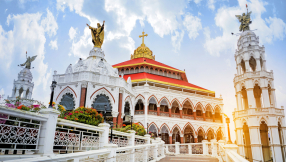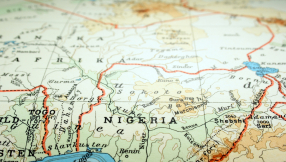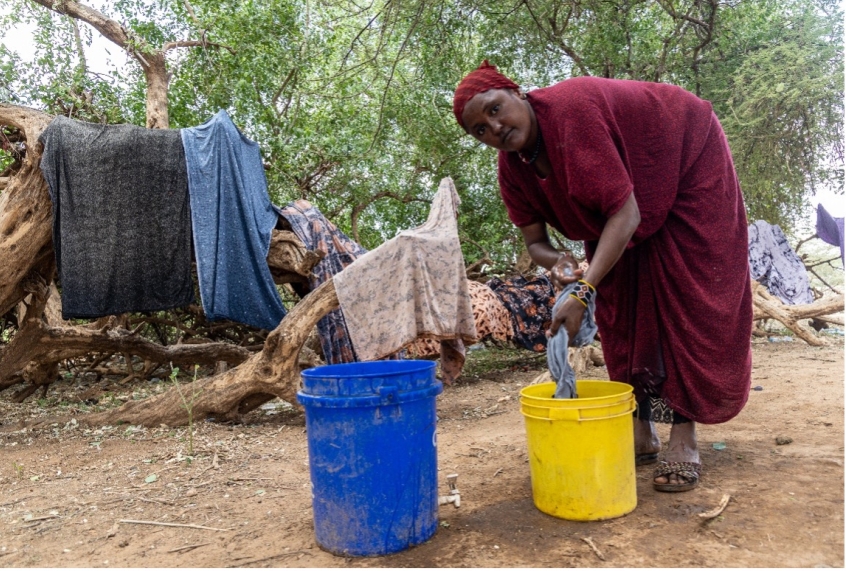
The heatwave this week is a stark reminder that climate change is happening. The world is getting warmer. In the UK we have experienced the highest temperatures on record. Over 6,000 miles away in East Africa for the first time, there have been four back-to-back failed rainy seasons. The prolonged drought this is causing is the worst the region has seen in 40 years.
The combination of this severe lack of rain, the rise in global food prices due to the war in Ukraine and the lasting impacts of Covid is causing a humanitarian crisis. Vulnerable people are now facing the threat of famine and dying. According to the United Nations Office for the Coordination of Humanitarian Affairs, 18.4 million people across Kenya, Ethiopia and Somalia are not getting enough to eat.
"Millions are taking desperate measures to survive in the face of failed harvests, livestock deaths, water shortages and extreme hunger," warns Yitna Tekaligne, Country Director for Christian Aid.
In Marsabit county in northern Kenya, Marian Nguyo is one of those people.
"Water is a big challenge in this area. With no rains we have to go to extreme lengths to get it," explains the 34-year-old single mother of four.
Marian is referring to the long walk she makes twice a week to collect water. Each time, the distance is 40 kilometres – nearly the length of a marathon. She buys a barrel of water and rolls it home, pulling the barrel with twine.
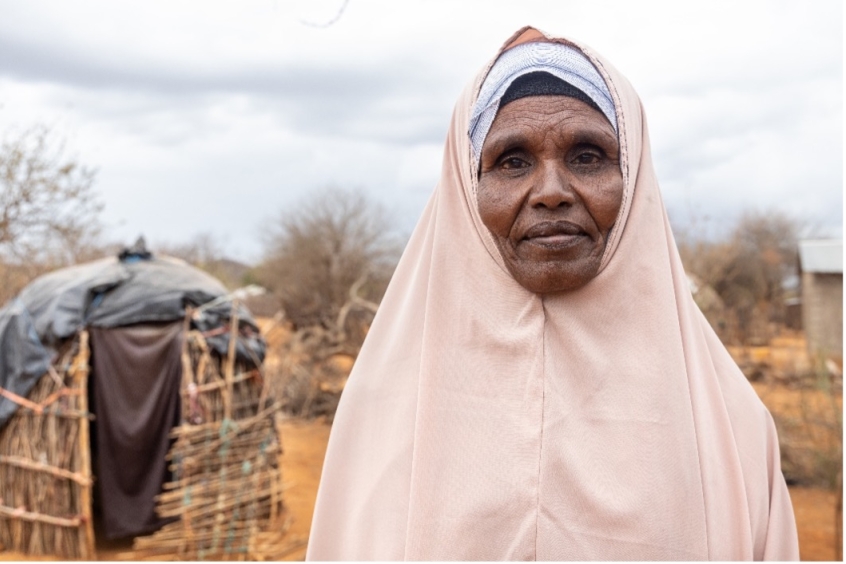
Fatuma Said Kassim from Qoloba, a 65-year-old farmer and mother of eight living on the outskirts of Moyale, also in Marsabit county paints a similar picture.
"We are badly affected by the drought, it has gotten worse," she says. "We have no meat or milk to sell. We can't water our vegetables because there is not enough water. The weather has changed over the last 10 years. Now we have prolonged drought, there have been no rains for the last four to five seasons and we are losing a lot of animals. No one has cattle anymore."
In South Omo in Ethiopia, the Dasenach community is also experiencing climate extremes like never before. As well as severe drought, the overflowing Omo River has caused a devastating flood that destroyed homes, crops and livestock as well as killed people.
Survivors had no choice but to move to internally displaced people (IDP) camps and live off handouts from humanitarian agencies. The ground is so hard that the flood water cannot penetrate. When it does finally recede, the community members hope to return. But for now, they await urgent humanitarian support.
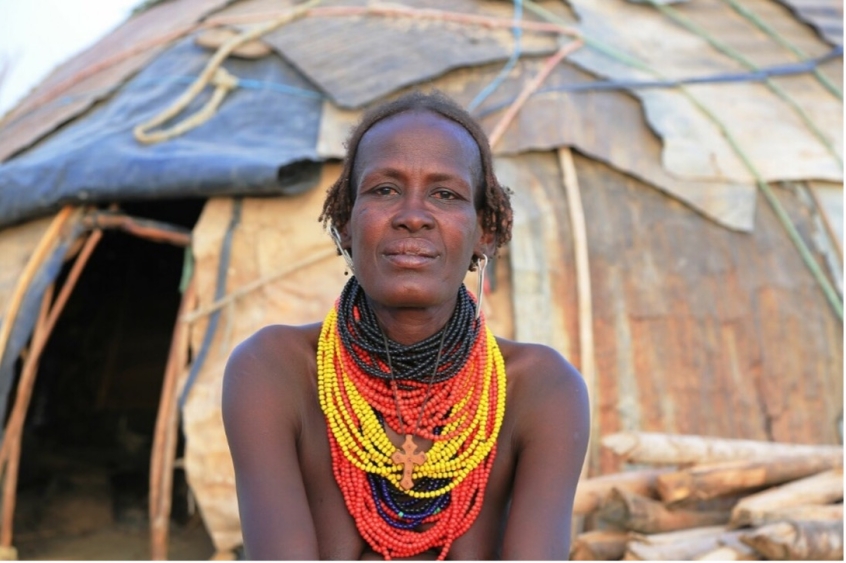
Galte Mine, 42, is one of the community members now living in Bayi Kebele IDP camp. She is the head of her household and has 12 children (seven boys and five girls). Before the flood, the drought was making the soil so dry it was difficult to grow crops, but Galte had introduced new varieties and was making a good income. Then the flood took everything she had.
She says, "Today, my kids ask me a question: 'We used to grow and eat all those crops and vegetables, but nothing now. Do you think we may again, one day in the future?' How can I answer this?"
She continues, "It was difficult for my children when the disaster struck, but they are becoming familiar to hunger these days. Because of the flooding, we are hungry. We are in trouble."
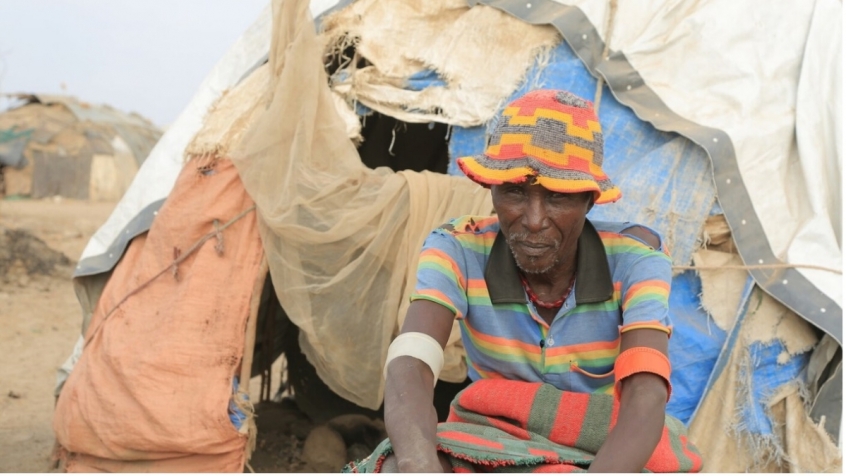
Adoko Hatoro Engang, 76, is living in the same IDP camp. He has 15 children from two wives. The water flooded his home and washed away his crops and now he has no means of producing any food for his family.
"The flood took many of my goats. Those goats which survived from the flood have died because of the drought," Adoko says. "We are hungry. Before the disaster, all the supports you provided us including malaria prevention, health treatment, shelter, cooking kits, education and animal medicine were all important and helpful. However, all these supports are meaningful only for someone existing in life. What is the meaning of distributing these things for a dead person? Please stop hunger for us first of all."
Christian Aid is working through local partners in both Kenya and Ethiopia to respond to this crisis. The charity is helping over 300,000 people by repairing wells, handing out water purification kits, providing cash support and trucking water to drought affected communities as well as providing fodder and medicine to keep valuable livestock alive.
This week it launched the East Africa Hunger Crisis emergency appeal to scale up this work and support more people like Marian, Fatuma, Galte and Adoko. A £15 donation could provide seeds and farming tools for one household, £30 will buy water hygiene kits to provide clean drinking water for six families and £50 will supply food for a household of five.
Yitna Tekaligne added, "The severe conditions are being made worse by the climate crisis, Covid and now Russia's invasion of Ukraine has caused global food prices to rocket. A tough situation has now turned into a dire crisis. To help us respond, please donate what you can."
To donate to the appeal, visit www.christianaid.org.uk/appeals/emergencies/east-africa-hunger-crisis-appeal












